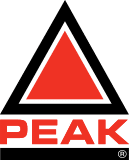Supporting At-Risk Employees for COVID-19

While everyone should be taking precautions to avoid contracting the coronavirus, engineering professionals age 65 and older, and anyone with underlying conditions, are at greater risk of developing serious complications if they contract COVID-19.
Although they are highly educated and capable professionals, at-risk engineers may need additional support and accommodations from management to perform their jobs until the pandemic abates.
To help you and your team achieve their goals, here are some ways to support a high-risk professional’s desire to grow and contribute, while keeping them safe from COVID-19.
Things to Know About High-Risk Employees
Before engaging in a conversation about COVID-19, it helps to know a few things about managing high-risk employees.
For instance, it’s estimated that 45 percent of all Americans suffer from at least one chronic disease. Consequently, there is a reasonable chance that someone on your team is considered high-risk. However, you may be unaware of their condition and surprised by their request for accommodations.
In most cases, employers may not exclude high-risk employees from the workplace, and managers are obligated to grant reasonable accommodations. In fact, excluding employees based solely on their age, without a medical directive to quarantine, may violate age discrimination laws. However, every situation is different and state laws vary, so when in doubt, refer to the latest (and evolving) guidance from the EEOC
Be Flexible and Understanding
Being willing to listen and discuss the employee’s concerns is the first step toward forging a mutually beneficial work arrangement. Explore their personal needs, preferences and comfort level working on-site. Consider the severity of the outbreak in the area, the office layout and the individual’s health vulnerabilities while being as creative and flexible as possible in honoring their requests.
For example, if feasible, let the engineer continue teleworking from the safety of their home, at least part-time. When at-risk employees do come to the office, help them minimize close contact with others by providing a private or secluded workspace and limiting the amount of time they need to spend in meetings and common areas.
Consider providing appropriate protective gear such as face masks, sanitizing wipes and gloves, though it certainly benefits everyone to take the same precautions. After all, the goal is to prevent the spread of COVID-19 as well as garden-variety colds and flu that spread like wildfire in an average office.
Let at-risk professionals shift client and vendor meetings to virtual in order to avoid all non-essential business travel and reassign visits to plants or worksites to other members of the team whenever possible. Remember, managers are responsible for ensuring the safety of team members even when they are working at client sites.
Offer reimbursement for mileage or see if you can help arrange a rideshare with just one other employee to limit exposure. Employees who feel supported during these challenging times, will work harder and be more engaged and loyal.
Create an Equal and Inclusive Environment
It is important that immunocompromised employees don’t feel excluded or that they are being treated differently because of their health.
Try not to let their disabilities or request to work from home influence how you evaluate their performance or assign projects. Scheduling regular updates with the engineer can help you keep tabs on their performance and whether their needs and capabilities are changing.
Also, don’t let out of sight mean out of mind. Find opportunities to recognize them in front of their peers and remember to include engineers working from home in impromptu meetings, brainstorming sessions, lunch-and-learns, progress and post-mortem sessions and team events via web conference.
Engineers without disabilities may be unaware of the needs and support required for at-risk colleagues. Monitoring peer pressure and educating the entire team on safety and the risks professionals with underlying health conditions face can engender a more inclusive and equitable workplace.
Finally, keep in mind that the engineer may be sensitive about sharing details about their condition, especially with clients and colleagues. Respect their privacy by agreeing not to discuss their medical status with other members of the team.
Showing support for your highly valued contributors, whatever their needs are, can help them continue working and thrive, even during a pandemic.

